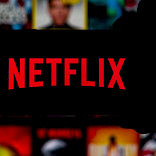Here is how the Oxford English dictionary defines “dogmatism”: “The tendency to lay down principles as undeniably true, without consideration of evidence or the opinions of others.”
I thought of this subject over the past few weeks following recent developments at Dollar Tree (“DLTR”), which we own in some of our portfolios under management.
This discount chain store has enjoyed great commercial and stock market success over the past many years, religiously following the strategy that has made it famous for 35 years: to sell all its products at the single price of US$1 (C$1.25 in its Canadian stores). In 2015, Dollar Tree acquired the Family Dollar chain of stores that offered products at prices other than $1, but management never really wanted to change their strategy of selling everything at $1 for their Dollar Tree chain.
For example, in the company’s 2018 annual report, the then president wrote, “For more than 30 years, Dollar Tree has earned a reputation for providing great value to our customers at the fixed price-point of $1.00 per item… We have maintained this $1.00 price-point, while leading the U.S. value retail sector in operating margin.”
Despite constant inflationary pressures, Dollar Tree has managed over the decades to stay true to this strategy by changing the packaging of its products, reducing costs through growing economies of scale, and improving logistics. Surprisingly, the Dollar Tree chain’s gross margin has remained relatively stable over the past many years. For example, the company’s gross margin was 30.5% in 2021 (January) compared to 30.9% in 2016. In the long term, however, investors suspected, and with good reason, that this single pricing strategy could eventually put the chain in trouble.
In its defense, the company had been testing a multiple price concept in some of its stores for several months. It had also developed a new Dollar Tree Plus concept offering multi-priced items. I believe, however, that it is the combined effect of the skyrocketing costs of recent months and the sustained pressure of a major activist investor (Mantle Ridge) who got the better of what one might call the company’s single-price dogma. On November 23, Dollar Tree announced that it was increasing the prices of all its items from $1 to $1.25. According to company president Michael Witynski, “Lifting the one-dollar constraint represents a monumental step for our organization and we are enthusiastic about the opportunity to meaningfully improve our shoppers’ experience and unlock value for our stakeholders.”
The announcement boosted the company’s stock to nearly $130 from nearly $100 in September. Time will tell what the financial impact of this major change will be on the company, but I believe it changed its outlook for growth and profitability overnight for years to come.
In my opinion, this example illustrates the danger of sticking to your original ideas and not regularly questioning them. Often, the rationale that “we’ve always done it like this” just doesn’t hold water. This is as true for business leaders as it is for investors.





